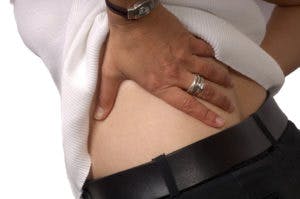Endometriosis Awareness
Happy Endometriosis Awareness Month ( a little late….)
Endometriosis is defined as the presence of endometrial-like tissue outside of the uterus. These deposits are found mainly in the pelvis, but can be find in other sites in the body including the bowels, diaphragm and even the brain. In the US alone, it is estimated that endometriosis affects approximately 5.5 million women; 10-15% worldwide. Symptoms include pain in the abdomen, low back, legs, and pelvis. Pain may be cyclical, but not always! Endo can be challenging to diagnose because of it various presentations, which often mimic musculoskeletal impairments such as sciatica. Many women experience a delay in diagnosis of 7-12 years, while seeing an average for 5 providers. Other symptoms may include rectal pain, ovulation pain, pain with intercourse or orgasm, fatigue, infertility, constipation and nausea/vomiting. Physical therapists that specialize in abdominal and pelvic health such as Dr. Miller, PT, Dr. Scott, PT, Dr. Watson, PT, and Carson Miller, PTA have a unique role in helping women who experience endo symptoms. Treatment includes manual, exercise, and muscle retraining techniques to treat pain, urinary or bowel disorders, sexual dysfunction and fertility issues. Specialized PTs can also address lifestyle modifications, provide nutritional support, and assist in stress management techniques relevant to women with endometriosis or chronic pelvic pain. The best evidence shows that physical therapy in conjunction with deep excision surgery best addresses endometriosis and it’s symptoms and minimizes the risk or recurrence. #fightlikeagirl

Nutrition Matters!
Nutritional recommendations for Endometriosis involve eliminating foods and beverages that provoke systemic inflammation and exacerbate pain, as well as adding foods that promote healthy digestion and improve gut-brain connection. Specifically, you should focus on normalizing gut flora (probiotic supplementation or probiotic foods such as Kombucha), healing leaky gut, a gluten-free diet, and vitamin D supplementation. Please refer to your PT/PTA for questions and more information regarding nutritional correlations specific to pelvic rehab.

